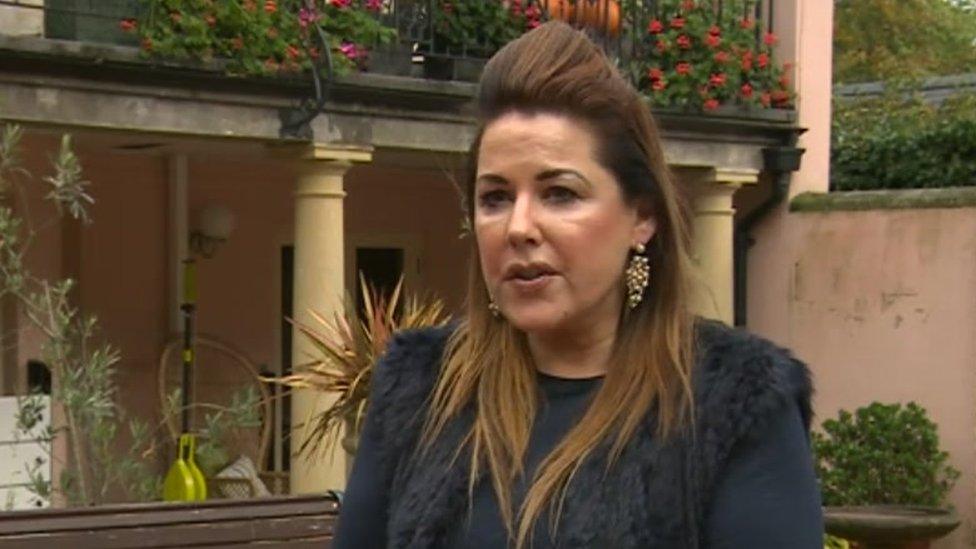Severn flood defences 'may not be enough' in the future
- Published
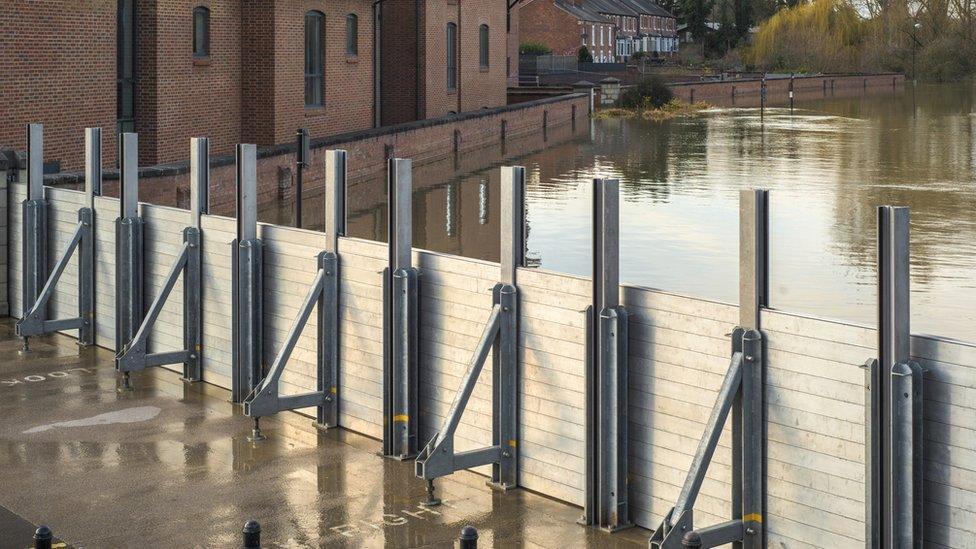
Flood defences, such as these in Frankwell, Shrewsbury, may not offer enough protection in the future, Dave Throup has warned
Flood defences along stretches of the River Severn may not be enough to protect homes and businesses against long-term environmental change, an expert has warned.
Dave Throup, area manager for the Environment Agency (EA), said flooding was "getting more frequent" and "more severe".
He added water levels along the river, running through Shropshire, Herefordshire and Worcestershire, could rise by 0.6 to 0.8m within the next 20 or 30 years.
Mr Throup said there needed to be a focus on "long-term" methods to combat the issue.
He spoke following an EA report that said the UK was not ready for the impact of climate change.
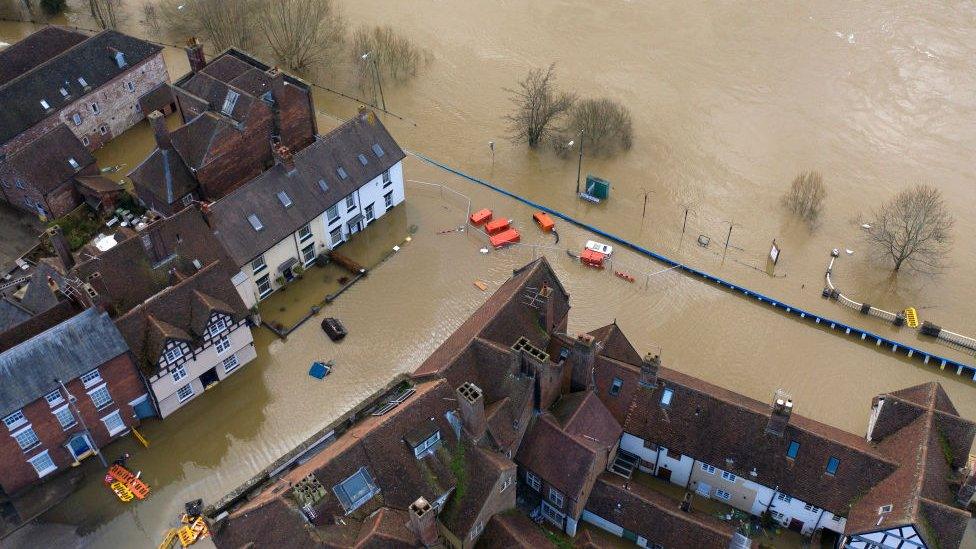
Bewdley in Worcestershire is to get new, £6.2m permanent defences after temporary barriers at Beale's Corner were overwhelmed in 2020
Heavy rain in February 2020 caused widespread flooding in towns along the Severn, including Shrewsbury, Ironbridge and Bewdley.
But while the river had been "fortunate" in the money invested in flood defences, Mr Throup said, "with climate change now, and the scale of the flooding we are seeing, that is not going to be enough".
He said the EA was regularly seeing water levels reach heights that would previously have been described as "once in a generation".
"We're not going to be able to build our way out of this, so increasingly it is about catchment management," he said.
"That is a more challenging and a more long-term way of tackling it, but it is going to be essential."
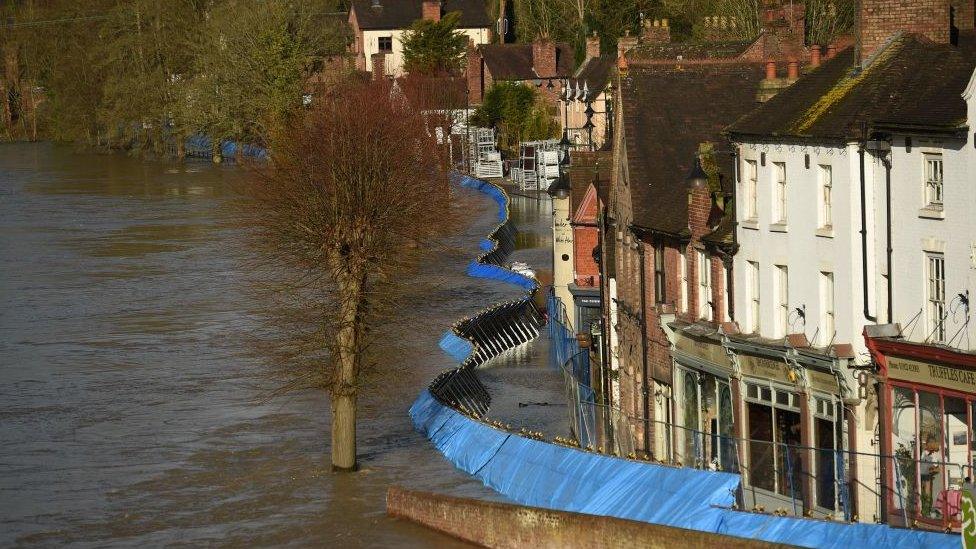
Alterations have been made to flood barriers in Ironbridge that were forced back by the Severn in February 2020 - but Mr Throup says further action will be needed long term
People also needed to take their own action, both to protect their properties from flooding, Mr Throup said, and also to help reduce the impact of climate change.
"It is incumbent on us all to take those actions to reduce our own carbon footprint. If that seems a tiny step, it is only through that we are going to mitigate the impacts that are already going to happen.

Follow BBC West Midlands on Facebook, external, Twitter, external and Instagram, external. Send your story ideas to: newsonline.westmidlands@bbc.co.uk, external
- Published29 October 2021
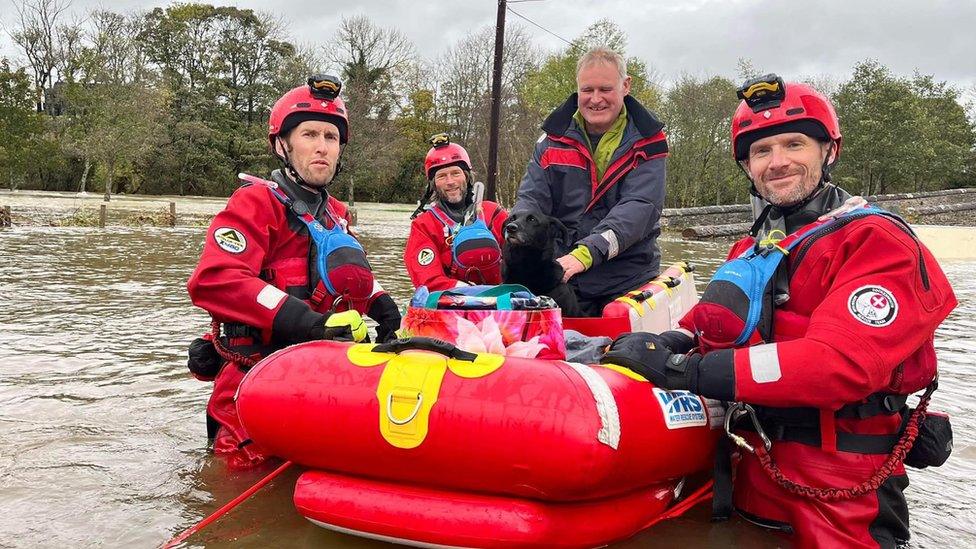
- Published24 October 2021
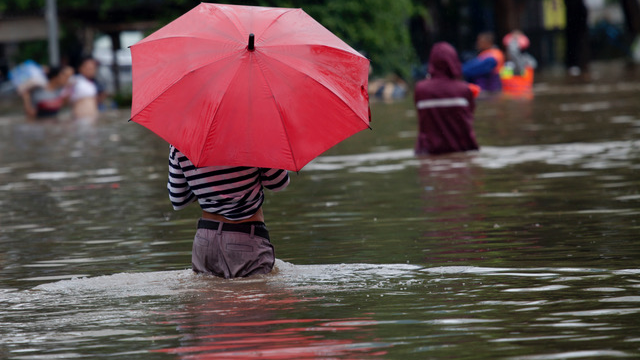
- Published12 October 2021
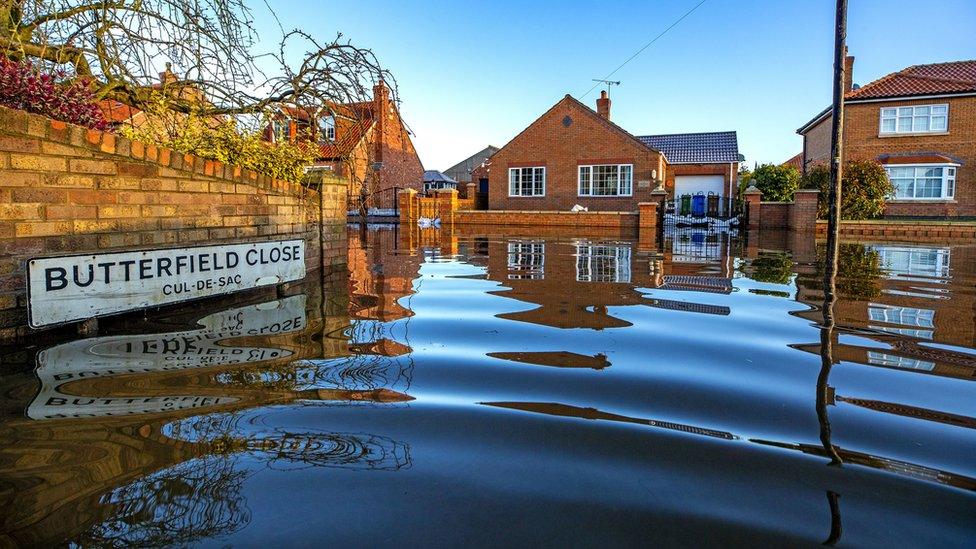
- Published5 October 2021
